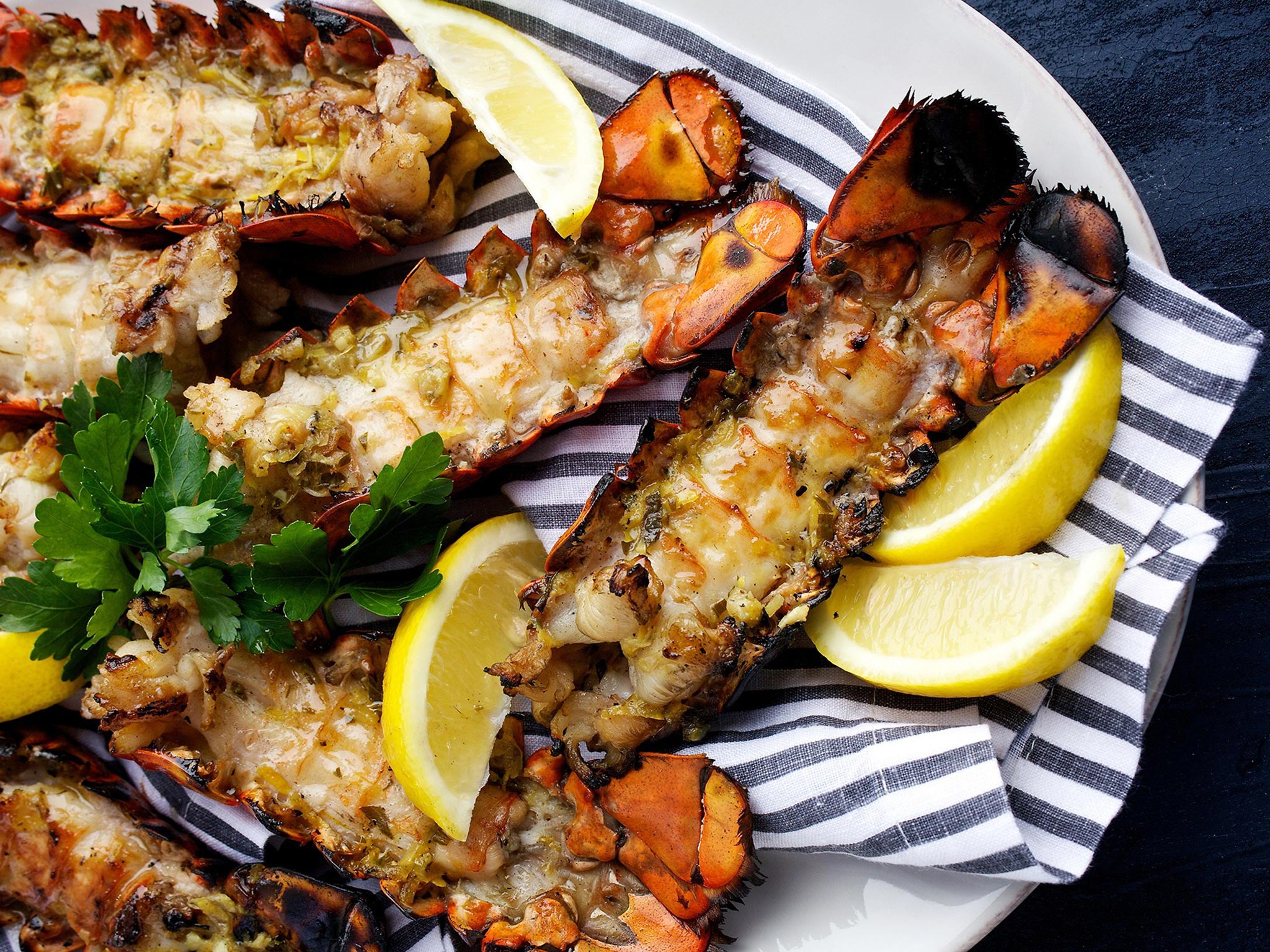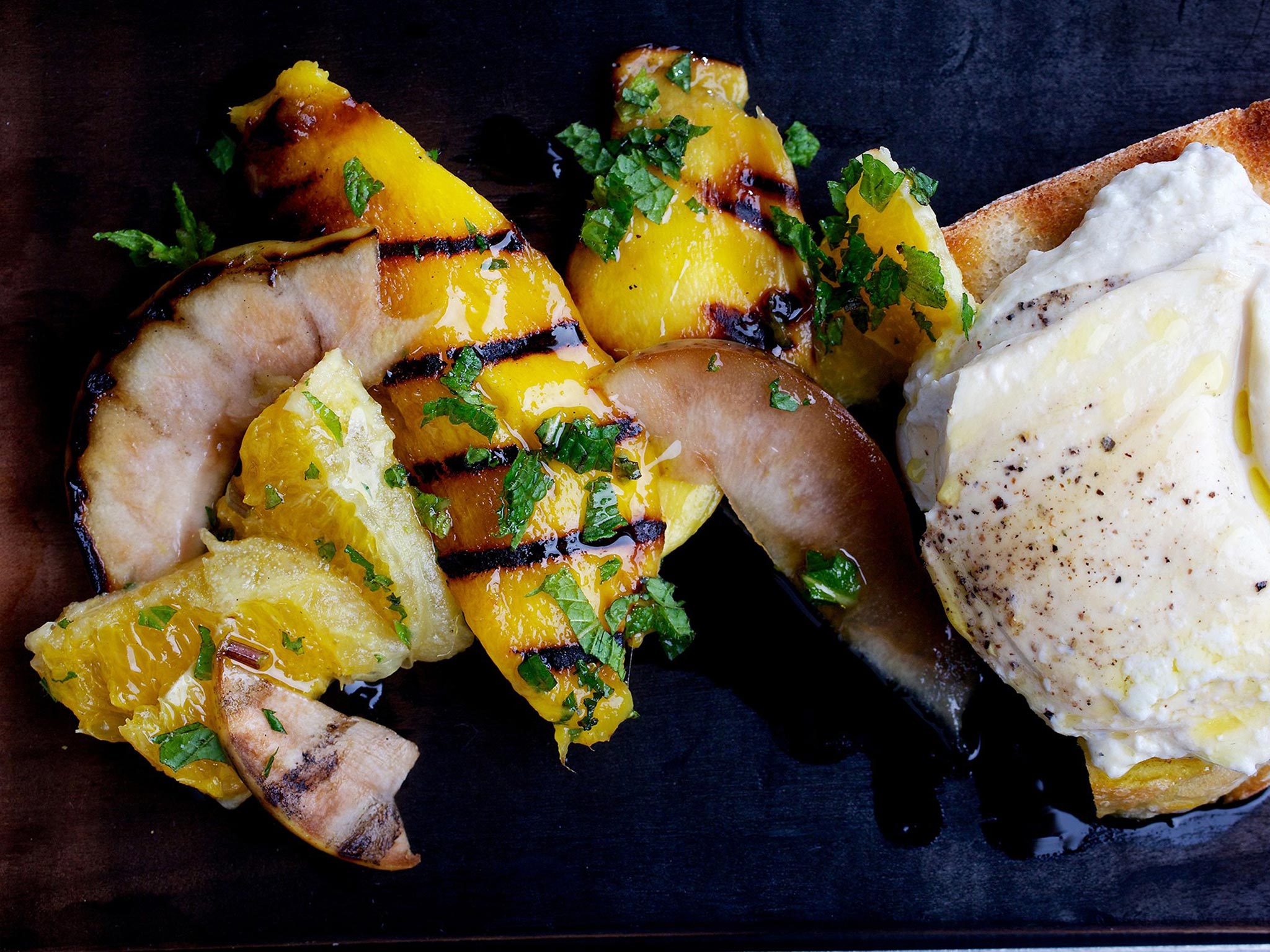A barbecue's aroma can turn many of us into drooling fools - but why do we react this way?
Jim Shahin looks to science for some answers

The aroma curling up from the grill makes me practically tipsy. As it happens, I am smoking beef short ribs. A leisurely bath in the vapours deepens their beefy flavour and softens their chewy texture. But I could be smoking anything, really: chicken, pork shoulder, brisket. The alchemy of low-and-slow smoking would intoxicate, no matter the meat.
That isn't just me, barbecue hound, talking – it is all of humanity. So say chefs and food scientists when I set out to answer a simple question: why do we love smoke?
It could be connected to the fact that it's elemental and universal. As Korean-American-Southern chef Edward Lee writes in his 2013 cookbook, Smoke & Pickles, the appeal spans the continents. But he goes further.
"Some say umami is the fifth [taste], in addition to salty, sweet, sour and bitter," Lee writes. "I say smoke is the sixth."
I agree, but apparently that's love talking. Science has other ideas.
Jonathan A Zearfoss, a professor at the Culinary Institute of America in New York, shoots down Lee's theory. "A specific compound works with a specific receptor for the basic tastes," Zearfoss says. "There isn't a responder in the taste buds for smoke."
But if we don't taste it, how are we responding to it? The answer is a little complicated and it first requires us to distinguish between flavour and taste. Flavour comprises three elements: taste (which we detect in receptors found in the taste buds), physical stimulation (such as texture, sound, appearance and pain – think chillies) and smell.
"Most of the flavour of smoke is smell," says Marcia Pelchat, a sensory scientist at the Monell Chemical Senses Center. Smoke is made up of gases, water vapour and small particles resulting from combustion. It contains chemicals from cellulose and lignin, the primary constituents of wood, which break down into other compounds that we detect as aromas.
Of the three elements of flavour, it's smell that rocks our dawn-of-man world. That's because the sense is lodged in an ancient part of the brain called the limbic system, which houses emotion and long-term memory. Smells trigger personal memories as well as atavistic, or ancestral, ones. "In evolutionary terms, we all started cooking with fire," Pelchat says. "That smoky smell is a really strong stimulus."

In his 2009 book Catching Fire: How Cooking Made Us Human, Harvard biological anthropologist Richard Wrangham theorises that cooked food helped us evolve because it took less time to digest, leaving more time for us to do other things, like inventing the wheel.
"We are not like other animals," Wrangham writes. "In most circumstances, we need cooked food."
The elemental scent of meats being cooked over fire, dating back roughly 1.8 million years, remains part of our culinary DNA. A glance around my kitchen finds evidence. I see smoked salt, three types of smoked paprika, smoked olive oil, smoked brown sugar, cans of smoky chipotle peppers, even such things as smoked nectarine butter and a grapefruit-and-smoked-salt marmalade. In the fridge is a jar of roasted habanero salsa, smoked jalapeños and grilled Hatch chillies. Your house may not be quite as smoke-filled, but the point is, there are lots of smoked products on the market. Again, why?
"I don't know if we come into the world loving these smells or if we come into the world prepared to love it because of evolution," says Paul Breslin, a professor of nutritional science at Rutgers University. "But the connection is profound."
Breslin tells a story that shows just how profound. About two decades ago, six years after he had sworn off red meat, he saw two halves of a skinned goat – including its head – hanging in a butcher's window, its eyeballs and brain exposed. "It was really gross to me," he says. "The very same day I saw this, I remember walking in my neighbourhood and someone was having a barbecue. The smoke wafted over their garden, so much so that it made me start salivating and even made me a little dizzy.
"How is it possible: the idea of being repulsed by meat, but smelling smoked meat made me weak at the knees?" At one time in our history, before gas and electric stoves, all cooked food would have had an element of smoke. "We now think of smoke as a dimension of food," Breslin says.
"Two hundred years ago, no one would have thought that. Bread and puddings and apple pie – everything was cooked over an open hearth. But today, you can say that people smoke pig and other foods. That wouldn't have occurred to people back then."
Although smell predominates, taste is not altogether absent. Smoking foods creates the Maillard reaction, which occurs when heat on a dry surface breaks down sugars and amino acids. Examples are the sear of steaks and the "bark", or crunchy, browned exterior, of slow-smoked beef brisket. The taste components include sweetness and bitterness.
Whether smell or taste, smoke has come a long way from its prehistoric origins. Once used to kill potentially deadly bacteria and preserve food, smoke today is just another quiver in a cook's flavour arsenal. Top culinary schools teach students how to smoke a variety of foods, from brawny pork shoulders to delicate soups. "I had a fear that if kids learned to sous vide only, they wouldn't learn the fundamentals," says Theo Roe, who teaches garde manger (cold foods, including charcuterie) at the CIA.
He says he has been pleasantly surprised that students don't seem all that interested in the trendy sous vide, in which food sealed in plastic pouches is slowly poached under tightly controlled temperatures. Instead, "the response has been... 'I'm building a fire like my grandfather did'".
At the Washington restaurant Del Campo, chef Victor Albisu shows how far smoke has come. Drawing on the Peruvian tastes of his youth, he smokes simple syrup for cocktails and ice cream for desserts. Cheese is seared. Beets are charred. His wood-grilled meats get a wash of herb smoke.
"We treated smoke as important as salt or garlic or onion," he says of his family's approach to cooking.
"It was just another ingredient. Without it, the food always feels a little empty to me. I believe in smoke as a flavour component."
Albisu then rhapsodises awhile, romancing on the appeal of smoke, from its role in bringing people together around a fire to its ability to ward off predators. He concludes with this: "I just think," he says, "there is a connection between humans and smoke."
Later, I go back out to the grill to check my short ribs. I watch as the smoke rises gently into the blue sky and drink in that ageless scent.
I think about the science and consider the poetry of smoke and I come to a realisation: those wisps may be ephemeral, but their effect on us is anything but.
A version of this article appeared in 'The Washington Post'
Join our commenting forum
Join thought-provoking conversations, follow other Independent readers and see their replies
Comments
Bookmark popover
Removed from bookmarks